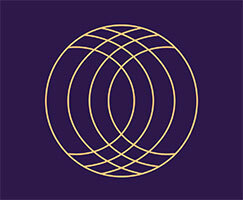Ayurveda translated from Sanskrit means "the science of life". The different rhythms of the seasons, the taste of food, the interaction of the elements in our body, the influence of our thoughts on our emotional and physical well-being, has been observed and researched for generations. This deep knowledge of the nature of life, over 2000 years old, makes Ayurveda a holistic, sustainable and nature-based system of medicine.
It is based on the premise that our body, psyche, soul and environment are directly interrelated and inherently healthy and capable of healing. This healthy state is called prakrti. It is composed of the individual interplay of the elements space, air, fire, water and earth. Each person has a unique distribution of these elements within him or her. These elements are bundled in Doshas
The 3 main doshas are:
- Vata- space and air
- Pitta - fire and water
- Kapha - water and earth
Our innate balance can become imbalanced due to emotional and psychological stress, our diet, (transgenerational /systemic) trauma, accidents, our living conditions and climatic influences. This imbalance, called vikrti, is often hardly noticeable at first, but can lead to acute or chronic diseases in the longer term.
In the case of an imbalance of the doshas, Ayurveda goes gently and following the needs of the person to search for and eliminate the cause. This often takes time and patience. The natural healing methods have a long-term effect and often need more time to stabilize in everyday life. The self-responsible implementation of the recommendations is crucial for the success of the treatment.
Ayurveda gives us the tools to take care of our own well-being and to become experts for our own needs. Any blockages in self-care can be psycho-therapeutically identified and addressed.
Ayurveda uses comprehensive dietary and lifestyle recommendations, herbal preparations (Western and Indian), manual applications (massages, oil pours), elimination procedures, psychotherapeutic and spiritual methods.
Ayurveda is valuable for all people. If you are healthy, it can help you to maintain your health for a long time. If you are already ill, it can help you to know yourself deeply and to find out why you became ill and how you can actively support your healing.
Ayurveda has been shown to be successful in treating the following diseases:
- Rheumatic diseases
- chronic pain
- hypertension, obesity
- type 2 diabetes mellitus
- lipid disorders
- exhaustion syndromes, chronic stress, burnout syndrome
- Psychosomatic and mental illnesses, depression, anxiety and panic disorders, eating disorders
- sleep disorders
- allergies
- asthma bronchiale
- Skin diseases
- Gastrointestinal diseases, especially chronic inflammatory bowel diseases, irritable bowel syndrome
- PMS, PCO syndrome, endometriosis, menstrual cramps, menopausal symptoms
- Metabolic diseases
Afterwards I work out an individual treatment plan with you, which is based on your current life reality, your needs and your individual resources.
The duration of the treatment depends on your concerns and your state of health.
Some people may already feel a big difference within 3 treatments. In case of severe diseases, the treatment needs much more time and accompaniment.
Patience, compassion and initiative are crucial for the success of the treatment.
Part of the treatment is trauma and culturally sensitive counseling around your lifestyle and nutrition as well as psycho-emotional and spiritual issues.
healing@katjakossakowski.com

